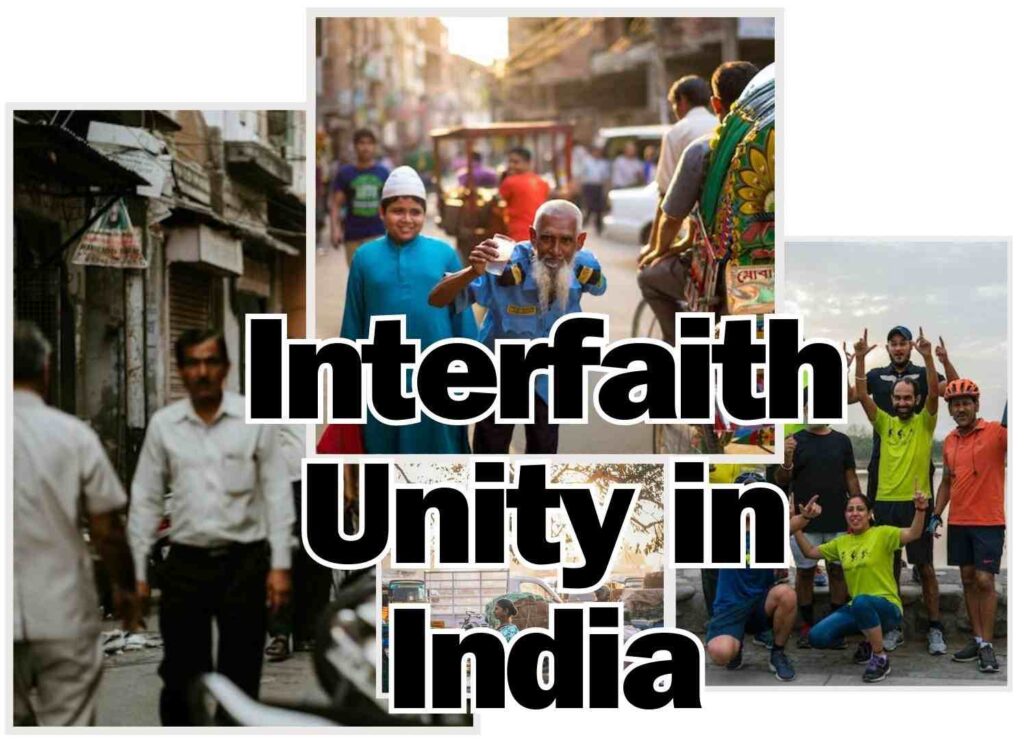Cultivating Unity in Diversity: Forging a United Society in India through Interfaith Harmony

India, a nation boasting rich cultural diversity and vibrant religious traditions, features a diverse array of faiths, including Hinduism, Islam, Christianity, Sikhism, Buddhism, Jainism, and Judaism. This diverse spectrum of beliefs and practices has significantly enriched India’s cultural fabric, cultivating a distinctive ethos of religious tolerance and pluralism. However, the country grapples with the challenge of fostering interfaith harmony and understanding, facing occasional religious tensions and conflicts that jeopardize social cohesion and peaceful coexistence.
The Essence of Interfaith Harmony
Interfaith harmony, characterized by mutual respect and understanding among people of different faiths, stands as a linchpin for constructing a cohesive and peaceful society. It involves acknowledging the common values and aspirations shared by all religions, appreciating the differences in beliefs and practices, and cultivating a spirit of tolerance and acceptance.
Challenges to Interfaith Harmony
Despite India’s enduring tradition of religious tolerance, interfaith harmony encounters hurdles due to various factors:
- Misconceptions and Stereotypes: A lack of knowledge and understanding of other faiths can breed misconceptions, stereotypes, and prejudices, fostering mistrust and animosity.
- Political and Sociological Factors: Political exploitation of religious differences, historical grievances, and socioeconomic disparities can contribute to interfaith tensions.
- Social Media and Disinformation: The dissemination of misinformation and inflammatory content through social media can exacerbate religious tensions and incite violence.
Strategies for Nurturing Interfaith Harmony
Fostering interfaith harmony demands a comprehensive strategy addressing individual and societal attitudes and behaviors:
- Education and Awareness: Promoting interfaith education in schools, communities, and religious institutions can cultivate understanding and dispel misconceptions about different faiths.
- Interfaith Dialogue and Engagement: Encouraging dialogue and engagement between people of different faiths can dismantle barriers, build trust, and encourage mutual respect.
- Celebrating Shared Values: Emphasizing the common values and aspirations shared by all religions can nurture a sense of unity and shared humanity.
- Promoting Religious Tolerance in Public Discourse: Encouraging responsible and respectful discourse about religion in the public sphere can defuse tensions and promote tolerance.
- Addressing Social and Economic Inequalities: Tackling underlying social and economic disparities that contribute to interfaith tensions is crucial for promoting social justice and harmony.
Role of Government and Civil Society
Both the government and civil society play pivotal roles in fostering interfaith harmony:
- Government Policies: Advocating policies that promote religious freedom, safeguard minority rights, and address discrimination are essential for creating an environment conducive to interfaith harmony.
- Civil Society Initiatives: Supporting civil society initiatives that champion interfaith dialogue, education, and community engagement can foster mutual understanding and respect.
- Role of Religious Leaders: Religious leaders can significantly contribute to promoting tolerance, understanding, and peaceful coexistence among different faiths.
Conclusion
Fostering interfaith harmony and understanding is an ongoing process that demands sustained dialogue, education, and a commitment to mutual respect and tolerance. By embracing India’s rich religious diversity and promoting harmonious coexistence, we can build a more cohesive, peaceful, and inclusive society.




